
Châtenay-Malabry (FR - 92290), August 14, 2023
EFITA newsletter / 1076 - European Federation for Information Technology
in Agriculture, Food and the Environment
The informatique-agricole.org site offers you the possibility of subscribing
the RSS feeds of its two newsletters
See RSS feeds
to implement to ensure that you continue to receive this newsletter
To unsubscribe
this newsletter, please contact me directely: guy.waksman(a)laposte.net
if this
link Unsubscribe does not work.

To correspond with me (GW), please use this address: guy.waksman(a)laposte.net
To subscribe the efita newsletter (please ask your friends and colleagues
to test this link)
Efita
Newsletters subscription
Avant l'informatique / Before computers
|
14/08/2023
|
 |
|
Weekly newsletters about ICT in Agriculture in English and French
Both newsletters have around 5000 subscribers.
>>> Last weekly EFITA Newsletters in English (created in 1999)
Efita
Newsletters
>>> Last weekly AFIA Newsletters in French (created more than 20
years ago in 1997) Afia
Newsletters
>>> Statistics
for the latest efita newsletter
>>> Latest
issue of the afia newsletter
>>> Latest
available satistics for the afia newsletter
Join over 450+ agri-food players in the transition
6-7 September 2023 - AMSTERDAM
Join 450+ key players across the food value chain at this year's Regenerative
Agriculture & Food Systems Summit and identify new opportunities and
challenges for incentivising and onboarding hesitant farmers, whilst implementing
nature positive strategies to accelerate the transition to regenerative
agriculture.
See
regenerativeagriculturesummit.com
Willing to become the inspiring leader you deserve to be?
Mental fitness Leadership Coach, I help Managers:
- to be the inspiring leaders they deserve to be,
- experience less stress, restlessness and anxiety.
See coachpoint.biz
Famille de paysans dans un intérieur / Peasant family in an interior,
1642, par Louis Le Nain (1593-1648), musée du Louvre
|
01
- 14/08/2023
|
 |
|
Repas paysan / Peasant meal, par Louis le Nain (1593-1648)
|
02
- 14/08/2023
|
 |
|
Bpifrance Partners with the French Agriculture Ministry to Boost AgriTech
Startups
In a significant move under the France 2030 plan, Bpifrance has teamed
up again with the Ministry of Agriculture and Food Sovereignty to launch
a 12-month program. This initiative will support 14 agroecology enterprises
in refining their business models and setting them on a sustainable growth
trajectory, considering the challenges of ecological and energy transition.
.../...
The 14 companies participating in the Accélérateur Agroécologie include:
1. Abelio: A leader in decision-making tools for large-scale farming,
aiming to expand its service range and accelerate hardware and software
development. Website
2. Agriloops: Designed a circular economy-based farm model to produce
prawns closer to consumers.
3. Agri-obtentions: An independent company focused on creating and valuing
varietal innovations. Website
4. Doriane: Facilitates the digitization of research and experimentation
in agronomy.
5. Elicir: Produces plant extract-based biostimulants to boost plant defense
mechanisms.
6. Geochanvre: Manufactures a 100% natural material of local hemp fibers
for agriculture, landscaping, packaging, and construction sectors.
7. Green Impulse: A startup developing biocontrol agents and biostimulants
for agriculture and the food industry.
8. Hiphen: Designs systems and services for digital plant measurement.
9. Jurion: Manufactures fertilizers and biostimulants.
10. Multifolia: Produces and develops bio-based, bioactive products from
sainfoin.
11. Mycea: Creates mushroom-based bio-solutions for agriculture.
12. Oligoplus: A biotech startup manufacturing and selling microorganisms
to enhance plants’ nitrogen fixation efficiency.
13. Sabi Agri: Designs and manufactures electric tractors and robots.
14. VIF Systems: Designs and installs equipment of varying sizes for hydroponic
plant growth in controlled environments to de-risk plant production.
See
igrownews.com
How did we see the future yesterday??
See
the incredible collection developed by Alain Fraval
How to Get a Voice-Controlled Version of ChatGPT on Android, With VoiceGPT,
by Cheryl Vaughn, Jun 30, 2023
If you're an Android smartphone user looking for a powerful chatbot assistant
that provides advanced features and can also work hands-free, look no
further than VoiceGPT.
The app allows you to control ChatGPT via voice commands. Not only can
you record your query with voice input, but you can also use it to perform
a variety of tasks within the ChatGPT interface, even when you're on the
go. Let's take a closer look at how you can set up and use VoiceGPT on
your Android device.
.../...
See makeuseof.com
Artificial intelligence is revolutionizing farming, especially amid
labor shortage, by AGDAILY, June 12, 2023
Some say the world is at a new frontier — artificial intelligence’s technological
frontier. And while self-driving Teslas seem a bit overkill for farms,
cutting-edge technology in agriculture is revolutionizing how farmers
produce food.
.../...
One thing is for certain, ag automation is going to continue to grow.
And with continued technological advances and automation, the agricultural
workforce and how farmers grow food will continue to change.
See
agdaily.com
Paysans dans un paysage / Peasants in a landscape, 1640, par Louis
Le Nain (1593-1648), Washington, National Gallery of Art
|
03
- 14/08/2023
|
 |
|
Paysans dans un paysage (détail) / Peasants in a landscape
(detail), 1640, par Louis Le Nain (1593-1648), Washington, National
Gallery of Art (détail)
|
04
- 14/08/2023
|
 |
|
Tech Hub LIVE 2023
>> 5 Key Takeaways from Tech Hub LIVE 2023
According to the numbers, the 2023 version of Tech Hub LIVE was a
great success. Over the course of the three-day event, more than 700
attendees were on hand to visit with more than 70 exhibitors and attend
almost a dozen educational sessions.
>> Farmer Feedback: Tech Hub LIVE Panel Weighs In on Data Management,
Ag Tech Adoption
Tech Hub LIVE attendees heard from some farmers in the field about
topics such as autonomy, data management, and implementing climate-smart
agriculture (CSA).
>> CropLife Ag Tech Awards of Excellence Presented at 2023 Tech
Hub LIVE
Tech Hub LIVE 2023 honored four industry leaders this week with the
CropLife Ag Tech Awards of Excellence, part of the Global Ag Tech
Initiative. The awards program sheds light on some of the most important
people and programs that have helped agriculture realize the full
benefits of technology to improve agronomy, efficiency, and stewardship
in crop production.
> Tech Hub LIVE: Empowering AgTech Innovation and Networking
A key recurring theme throughout the conference was the essential
role of ag retailers in facilitating the adoption of new technologies
among farmers. Attendees learned that farmers and retailers seek solutions
that prioritize convenience, interoperability, and trust in well-established
companies.
See techhublive.com
futurefarming.com
> Demonstration showcases the skills of new in-row weeders
A recent demonstration in The Netherlands showcased the capabilities
of five smart in-row weeders.
> Agro Innovation Lab starts Seed Innovation Challenge
We are interested in all innovations that can be applied in the areas
of revolutionizing seed production. Take the chance and present your
innovation to a wide range of industry stakeholders and win prices such
as € 10.000,- POC-Money.
Apply now!
> Drones: ‘Get a professional opinion when buying a drone’
Farmers who want to purchase an application drone, should inform themselves
well.
> Sustainable agriculture: McKinsey & Company: sustainable agriculture
at a crossroads
McKinsey & Company released new research revealing that sustainable
agriculture practices offer a return on investment (ROI).
> Electric tractor: Swedish institute built tractor Drever 120 with
battery swap system
The electric autonomous agriculture machine Drever 120 was shown during
the Borgeby Fältdagar in Sweden.
> Acquisition: Tesla might acquire startup Wiferion
Tesla is rumored to buy Freiburg-based startup Wiferion.
> Special focus: What’s new in our Ag-drone buying guide 2023/2024?
> Drones: What’s new in our Ag-drone buying guide 2023/2024?
Future Farming introduces an impressive range of new application drones
in its drone catalogue this year.
> Investment: Source.ag receives investment to support growers with
AI
Source.ag, AI provider for greenhouse growers, announced the successful
completion of its Series A extension financing.
> Crowdfunding: UK Electrical weed control firm RootWave to open
crowdfunding
eWeeding pioneer RootWave is set to launch its first eWeeder within
agriculture via private investment complemented by crowdfunding.
> Isobus-errors and this might solve it – Isobus-test part 3
We have tested seven different tractors brands on how they work with
Isobus and prescription maps. Along the way, we had some struggles and
error. This is the third article on the topic of testing Isobus.
> Powdery mildew: UV and robot technology prevent powdery mildew
in horticulture
CleanLight’s UV technology with Antobot’s autonomous robot platform
allows UV-C to effectively prevent powdery mildew.
> Drying grain: Radio waves to dry grain by Dry Max Solutions
Dry Max Solutions uses radio waves (generated by electricity) to dry
grain at room temperature.
> Advertorial: Join us at #WorldAgriTech in London on September 26-27!
Bringing together 900+ growers, agribusiness leaders, startups and investors
under one roof at the InterContinental, London, The O2 to discuss innovation
and financing for nature positive, resilient agriculture and food systems.
Expect start-up discovery in an all-new start-up arena, partnerships
& investment opportunities, and plenty of C-Suite networking.
Use Future Farming’s exclusive discount code FARMFRIEND to save £459
on your ticket! (offer available until August 10)
> Driverless tractors: Trimble’s new Path Planning Tech: paving the
way to driverless tractors
Trimble has recently introduced Path Planning Technology. In an exclusive
interview, Future Farming delves into the benefits and practical gains.
> VDI conference: VDI conference: is the time ripe for automation
and robotics?
For the fourth edition of the VDI conference, some 40 international
specialists on automation and robotics in agriculture gathered in Düsseldorf.
> Building a carbon market – an innovative farm business
Although carbon markets are talked about a lot in agriculture, there
is still work to be done to fully realize them so that farmers rightfully
gain another revenue stream as they continually capture carbon in their
soils. A project at Hebert Grain Ventures in Canada.
> GPS-Technology: German dealer delivers gps-technology ready to
go
Getting the most out of your gps-technology is not that evident. The
features and possibilities are almost endless and that can result in
inefficient use and even frustrations.
> Small robots: Small Robots’ first commercial sale to centre for
robotics and AI
Small Robot Company announced its first commercial sale to the National
Robotarium in Edinburgh, Scotland.
> SprayHub: Lemken SprayHub front tank with section control and liquid
fertilizer injection functionality
With the integration of the innovative SprayKit, farmers can now experience
improved efficiency and substantial chemical savings during hoeing and
row spraying.
> Herbicide alternative: ‘The technology is exciting, it provides
an alternative to herbicides’
The XPower from AGXTEND produce a high voltage current that is applied
directly to plants via a series of electrodes in an applicator unit.
> Field robots: Swedish Ekobot WEAI Works on New Platform
The weed control robot, Swedish Ekobot WEAI, demonstrated its weed control
capabilities in an onion crop during a Dutch field demonstration. The
robot showcased several improvements as it progresses towards a completely
new model set for release in 2025.
> Tackling weeds integrally, these are the options
Keeping crops free of weeds without the use of herbicides is becoming
increasingly difficult. Weed control will require a more integrated
approach in the future. In other words, a combination of chemistry with
mechanical weed control.
> Harvest robot: EBC leads Seed Round into Raspberry picking Robot
developer
Elbow Beach Capital has committed £1.5m to an ongoing £2m+ fundraise.
> Terminal: Cemis 1200 simplifies the management of reference tracks
and tramlines
Claas has added new functions and features to its Cemis 1200 Universal
Terminal.
> Climate change: Assimila and CottonConnect address health issues
caused by climate change
CottonConnect and Assimila, supported by the European Space Agency’s
EO Science for Society Programme, have set up Combat Against Climate
Change on Cotton Communities, known as C5.
> Expanded API: Expandend API now available for the Trimble Agriculture
Cloud
Trimble announced the release of its flexible API for the Trimble Agriculture
Cloud.
> Environment: Who wants to work in a robotised and digitalised environment?
In the coming decades, employees will work in an environment that is
increasingly robotised, mechanized and digitalised.
> Harvest: Mitigating losses during harvest by using AI-based software
US Company Farmwave has created AI based software that monitors harvest
loss autonomously without stopping.
> Cybersecurity: Is ag adapting to changing cyber threats?
High profile cyber-attacks against agriculture and food businesses have
generated significant concern and media coverage in recent years.
> Measuring grass: Partnership announce technology that enables farmers
to measure grass from space
Aspia Space and Origin Digital have developed a new AI solution that
uses ClearSky imagery to estimate grass height.
> Pest detection: Pest and disease detection capability added to
robotic platform
Arugga AI Farming has signed a commercial collaboration agreement with
ViewNetic.
See futurefarming.com
La charrette / The cart, par Louis Le Nain (1593-1648), musée
du Louvre
|
05
- 14/08/2023
|
 |
|
La visite à la grand-mère / The visit to the grandmother (~1645-1650),
par Louis Le Nain (1593-1648), Saint-Pétersbourg, musée de l'Ermitage
|
06
- 14/08/2023
|
 |
|
Global ag tech initiative
> Ag Technology Helping Crop Yields Grow Despite Climate Change
Here are the most prominent technologies making strides in agriculture
and saving farms by protecting yields and profit margins.
> Tech Hub LIVE Keynote Presentation: How NASA Is Supporting a
Revolution in Ag Tech
Dr. Alyssa K. Whitcraft, Executive Director of NASA Acres and Deputy
Director of NASA Harvest, discussed NASA’s role in helping build ag
tech is for the public good.
> Voices of Women in Ag Tech: Ambassador Profile on Kathleen Glass
We bring you exclusive insights from our inspirational ambassadors
and other women leading the way forward in ag tech.
> Platform Ecosystems: Enabling Agriculture to Invert the Firm
The benefits of collaborating through data have become too valuable
to ignore, says contributor Reinder Prins.
> Intelinair, Eiwa Form Research Collaboration, Distribution Agreement
Eiwa will license drone analytic technology of corn and soybean fields
from Intelinair on Eiwa Vault’s analytics library.
> Venture Capital Takes Risk in Ag Technology So Farmers Don’t
Have To
Having innovations vetted, shepherded, and mentored by proven leaders
with deep hands-on ag expertise helps shield farmers from that risk.
> Voices of Women in Ag Tech: Ambassador Profile on Amy Asmus
We bring you exclusive insights from our inspirational ambassadors
and other women leading the way forward in ag tech.
> Ever.Ag’s New Campaign Showcases How They Simplify the Intricacies
of Modern Agriculture
The agricultural tech company tapped VSA Partners to make this complex
story clear.
> Women in Ag Tech Ambassadors: 'Sky's the Limit' for New Initiative
Women in Ag Tech Ambassadors Aurea Rivera and Carolyne Vowell share
why they are so excited about the future of the program.
> Agrivoltaics: Pairing Regenerative Farming and Solar Energy Production
to Improve Urban Resilience
To improve regional food systems in Inland Southern California, FFAR
is awarding Pitzer College a $1.8 million investment in agrivoltaics
research.
> Voices of Women in Ag Tech: Ambassador Profile on Jaymie Forrest
We bring you exclusive insights from our inspirational ambassadors
and other women leading the way forward in ag tech.
> Tech Company Honeywell Collaborates With Fruit Farmer Moleda
To Sustainably Grow Produce
Honeywell’s process controls enable Moleda to offer a pesticide-free
solution for growing plants for consumption.
See
globalagtechinitiative.com
La France moins bien notée que les USA (A-) / France (A-) rated
lower than the USA
|
01
- 14/08/2023
|
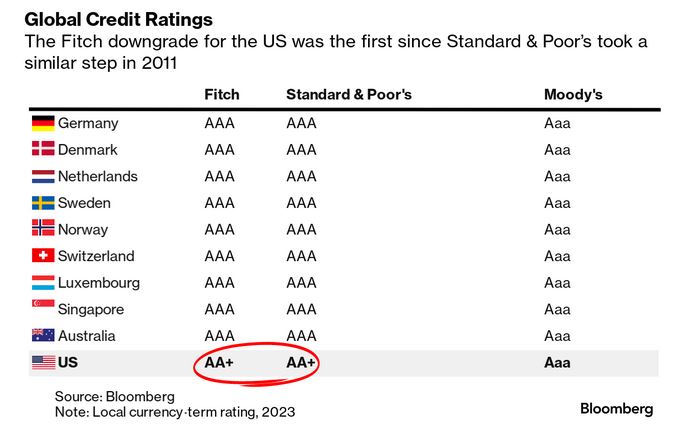 |
|
Villes vivables / City Liveability Index
|
02
- 14/08/2023
|
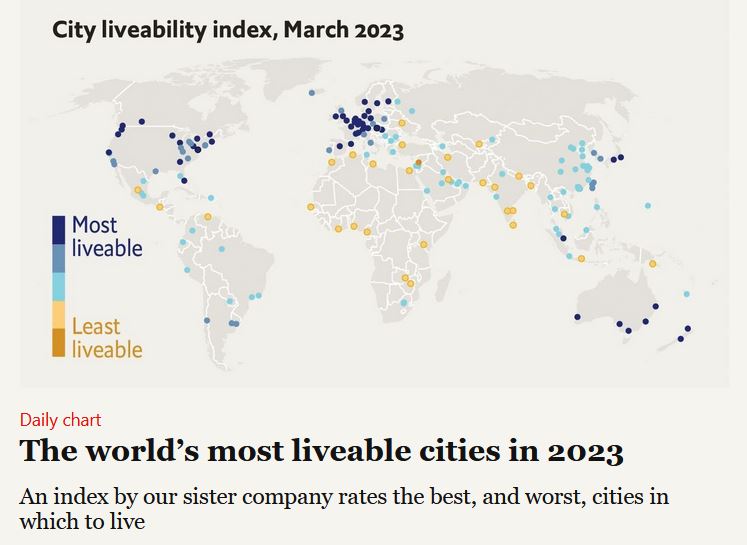 |
|
Retour sur la fabrication des batteries / Battery laggard
|
03
- 14/08/2023
|
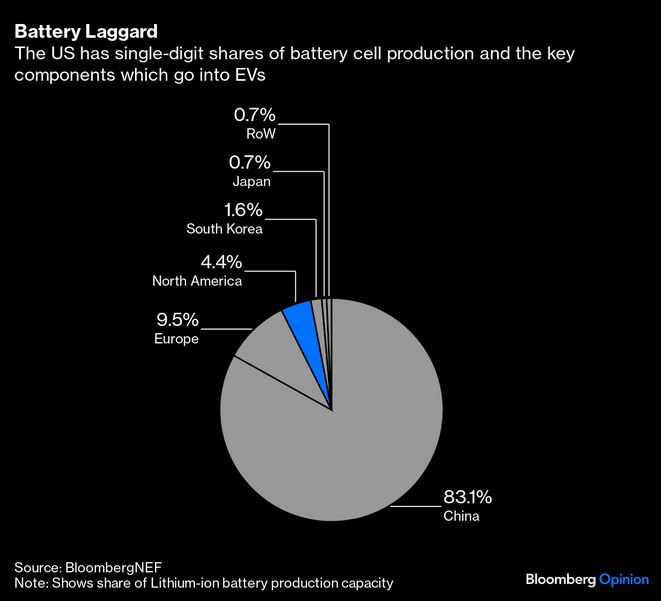 |
|
Notre dépendance à l'uranium / Radioactive dependency
|
04
- 14/08/2023
|
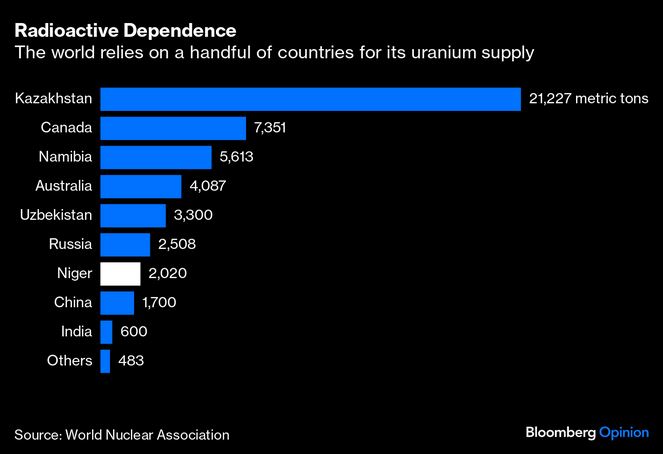 |
|
Début d'immigration au Japon ? Resident Foreigners in Japan
|
05
- 14/08/2023
|
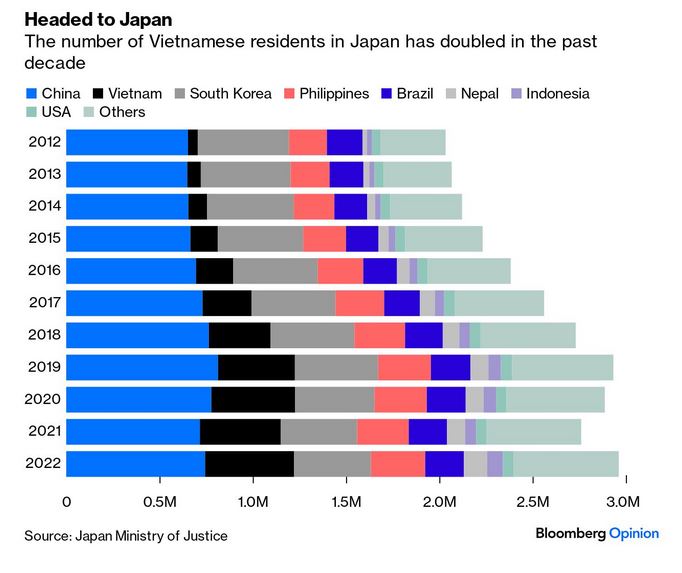 |
|
Agfundernews.com
> FDA food traceability architect Frank Yiannas joins IoT company
Wiliot to tackle ‘the Achilles heel’ of the food industry, by Jennifer
Marston
> Data snapshot: India farmtech investment ‘relatively strong’
despite a harsh fundraising environment, by Jennifer Marston
> Cover crop usage steady but still ‘only a fraction’ of total
acreage in the US, says Purdue’s latest farmer survey, By Jennifer
Marston
> Corporate-startup collaboration is vital for the growth of Latin
American agrifoodtech, say GLOCAL panelists, By Andrés Engler
See agfundernews.com
Less struggle, more compromises?
In this article from The Guardian, a centre-left British newspaper,
it is about Brexit that as a Frenchman, I deeply regret.
Today, Brexit is
not questioned by our British friends despite deplorable economic results.
That is not the main thing: Brexit is first and foremost a divisive
and polarizing project, giving a simplistic answer to a whole series
of complicated questions. In this sense it is a toxic project because
it is binary.
The problem is that
we cannot do without divisions, formerly "secular" against
"clerical", "conservative" against "progressive"...
In agriculture today, there are many divisions: the need to produce
more and better to feed the world, animal welfare, pesticides, GMOs,
meat production, water reserves, possibility of fixing carbon in the
fields… give rise to endless discussions.
It seems to me that
on all agricultural and agri-food or environmental issues (and not only),
we should try to get out of the polarization of opinions which is encouraged
by extremists and which will lead us to no good.
Can you change a Brexit state of mind? By Tim Adams, 13 Aug 2023
If departing the EU has failed to deliver, why is the UK still so divided?
Seven years on, we ask behavioural psychologists if cognitive dissonance
can be overcome.
.../...
Hughes’s book came out in 2019 at the height of “no deal is better than
a bad deal” insanity. If he were to add to it now, he suggests, it would
be as a textbook case of “polarisation theory” and the ways in which
the three-word sloganeering of “Brexit means Brexit” and “get Brexit
done” has been repurposed to provide the illusion of simplicity to other
very complex issues – “stop the boats” etc. The primary division of
Brexit has extended into “clusters of interwoven views” on the climate
crisis, vaccination and immigration, feeding everything into the same
blunt binary.
One result of that, he suggests, is that Brexit has become a classic
example of toxicity. “If there is something especially scandalous in
our own lives or traumatic, we will try not to mention it. It just brings
too much up. People talk about the ‘Ming vase strategy’ for Labour and
Brexit [the idea that they must not smash their precious majority].
The political logic is that this event was still so painful for people
that you could lose half the electorate as a result of one soundbite.”
If there is a way through this, he suggests, it is to break down the
myths of us and them. “Brexit was obviously never the single will of
the people, but also the will of leavers and the will of remainers are
very far from homogenous. Politicians need to find ways of foregrounding
the diversity of views that people had and have, even if some of them
might be very ugly. They need to show the illusion of simple polarisation.”
Preventing this, he says, is the fact that Brexit has brought into the
political mainstream “all the reasoning errors that people make”. Polarity
acts against nuance, and undermines the middle ground. “Both sides start
to look at the other as somehow irretrievably deranged. And when you
pathologise the other side, there’s no point in reaching out to them.”
As a result, he suggests, “People who have the opportunity to address
political challenges are no longer seeking to control the divisions
in society, they are trying to maximise them for their own ends.”
Does he see an end to that polarity?
“It would require politicians and commentators to take some of the heat
out of the arguments,” he says. “That might take a generation, or it
might be one of these cyclical trends.” For the time being, our Brexity
brains are it seems here to stay.
See
theguardian.com
| |
The
Efita newsletter is sponsored by:

|
A first thought for today
In an earlier stage of our development most human groups held to a tribal
ethic. Members of the tribe were protected, but people of other tribes could
be robbed or killed as one pleased. Gradually the circle of protection expanded,
but as recently as 150 years ago we did not include blacks. So African human
beings could be captured, shipped to America, and sold. In Australia white
settlers regarded Aborigines as a pest and hunted them down, much as kangaroos
are hunted down today. Just as we have progressed beyond the blatantly racist
ethic of the era of slavery and colonialism, so we must now progress beyond
the speciesist ethic of the era of factory farming, of the use of animals
as mere research tools, of whaling, seal hunting, kangaroo slaughter, and
the destruction of wilderness. We must take the final step in expanding
the circle of ethics.
Peter SINGER, philosopher and professor of bioethics (1946-)
A second thought for today
The influence of each human being on others in this life is a kind of immortality.
John Quincy ADAMS, 6th president of the US (1767-1848)
A third thought for today
Everything you've learned in school as "obvious" becomes less
and less obvious as you begin to study the universe. For example, there
are no solids in the universe. There's not even a suggestion of a solid.
There are no absolute continuums. There are no surfaces. There are no straight
lines.
R. BUCKMINSTER FULLER, engineer, designer, and architect (1895-1983)
A fourth thought for today
Courage is the price that life exacts for granting peace. The soul that
knows it not, knows no release from little things.
Amelia EARHART, aviator (24 Jul 1897-1937)
“Have you heard the awesome news? The end of the world is almost here.
It begins on May 21, 2011. The Bible guarantees it.”
“Data is the new oil. And so there’s sort of this very colonial perspective
of, this is a land grab.”
Like other researchers from the global south and Indigenous communities
working on machine-learning models for their languages, software engineer
and artificial-intelligence ethicist Michael Running Wolf is wary of big
tech companies collecting data for proprietary tools.
See
science.org
Lindsay Announces Acquisition of FieldWise
Acquisition expands Lindsay’s suite of technology solutions and increases
the number of connected devices.
See
businesswire.com
Hitting the agritech sweet spot with farmers, by Gerald Piddock, June
12, 2023
Agritech has to be viable, feasible and reliable for it to win favour with
farmers.
Wading through the vast array of technology available can be a daunting
prospect for dairy farmers looking to invest in new gadgets to make the
job easier.
The aim should be to hit that sweet spot between viability, feasibility
and reliability, DairyNZ research engineer Brian Dela Rue said at the organisation’s
Farmers Forum in Waikato.
Making a tech decision is very much down to the individual farmer and is
about identifying the need on the farm, the gap, and whether that gap can
be filled with training staff or if the answer will be new technology.
Assessing value and return on investment is difficult but financial factors
such as time saved and improved results are considered.
.../...
See
farmersweekly.co.nz
Mind-reading tech creates privacy issues
Advances in technologies that directly interact with the brain to monitor
or change its activity are raising thorny questions for ethicists. Delegates
at a meeting two weeks ago organized by the United Nations cultural organization
UNESCO plotted the next steps in governing brain-reading devices to protect
human rights such as privacy.
Policymakers face the challenge of creating regulations that protect against
potential harms — such as profiling individuals or manipulating people’s
thoughts and behaviours — without restricting research into their benefits.
It “is not a technological discussion — it’s a societal one, it’s a legal
one”, says Gabriela Ramos, UNESCO’s assistant director-general for social
and human sciences.
See nature.com
La forge / The forge (~1642-1643), par Louis Le Nain (1593-1648), Paris,
musée du Louvre
|
07
- 14/08/2023
|
 |
|
Le puits / The well, 1641, par Louis Le Nain (1593-1648), Collection
particulière
|
08
- 14/08/2023
|
 |
|
As the Climate Crisis Escalates, Here Are 18 Food and Ag Solutions
Climate change is here, and the news is dire. We share our recent stories
of the many food system innovators finding ways to mitigate damage, increase
resilience, and adapt to our ever-changing realities.
his summer, the world experienced the hottest week on record, with seven
consecutive days of off-the-charts temperatures, and many places are experiencing
other extremes, including deadly floods, droughts, and wildfires. These
severe conditions have a tremendous impact on our food system, affecting
everything from crop yields to working conditions on farms.
While agriculture is a major contributor to climate change, it can also
play a significant role in mitigating the impacts—and we at Civil Eats
make a concerted effort to focus on solutions in our coverage. So far
this year, we have shared numerous stories of creative thinkers across
the food system pursuing efforts to reduce damage, increase resilience,
and adapt to the new and ever-changing realities.
.../...
See
civileats.com
Ghana Census of Agriculture: 5 Key Insights, Challenges, and Recommendations
to Boost Agricultural Growth, by K. Afrane Okese, July 29, 2023
The Ghana Census of Agriculture (GCA), conducted by the Ghana Statistical
Service (GSS) in 2017/18, shed light on the state of agriculture in the
country. Despite being an essential sector for the nation’s economy, the
report reveals that agriculture in Ghana is primarily rural and lacks
innovation and modernization. Let’s delve into the key insights backed
by figures from the report to understand the challenges facing Ghana’s
agricultural sector and explore some recommendations for its growth and
development.
See nobowa.com
A new HIV drug is coming to Africa – it could be game-changing, By
Verity Bowman, 5 July 2023
Experts believe a new long-lasting version of PrEP has the potential to
dramatically change the course of the HIV epidemic in Africa.
See telegraph.co
Avec une heure de travail, vous pouvez acheter... / An hour of work will
buy you...
|
06
- 14/08/2023
|
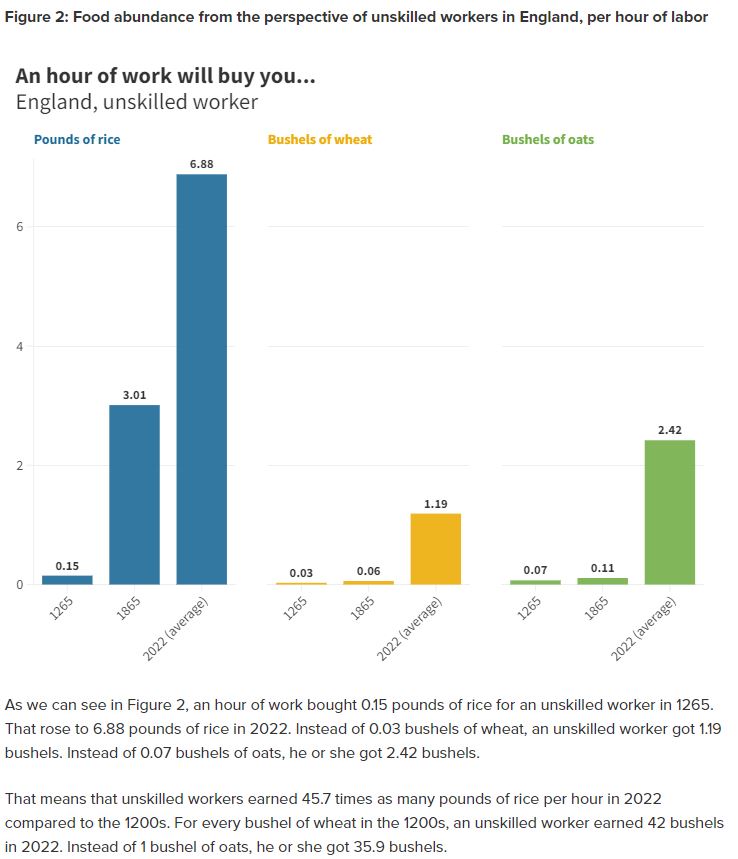 |
|
Combien d'heures de travail vous permettent d'acheter... How many hours
of works it take to earn...
|
07
- 14/08/2023
|
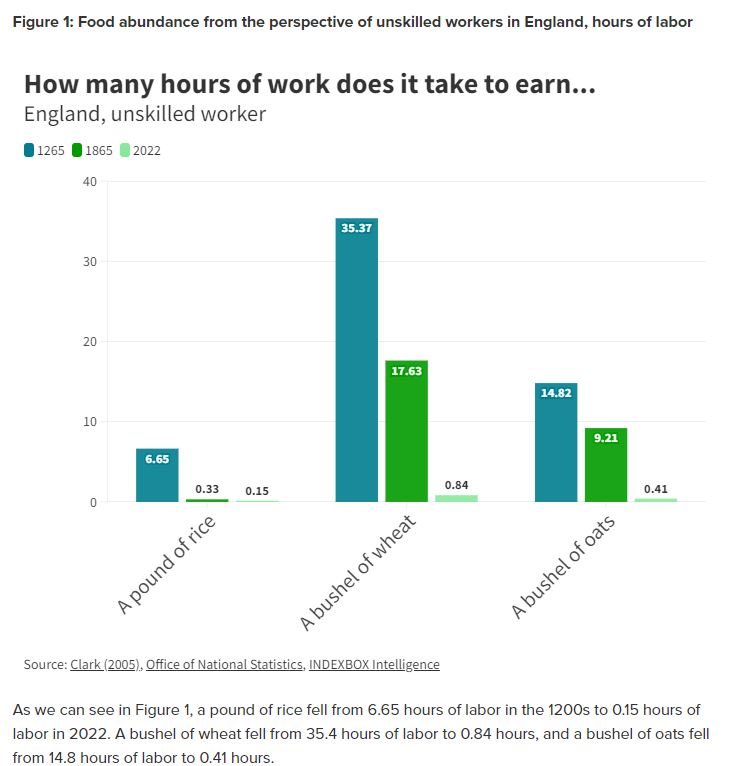 |
|
Moins de vin et de bière, plus de cocktails / Switching from beer and
wine to spirits
|
08
- 14/08/2023
|
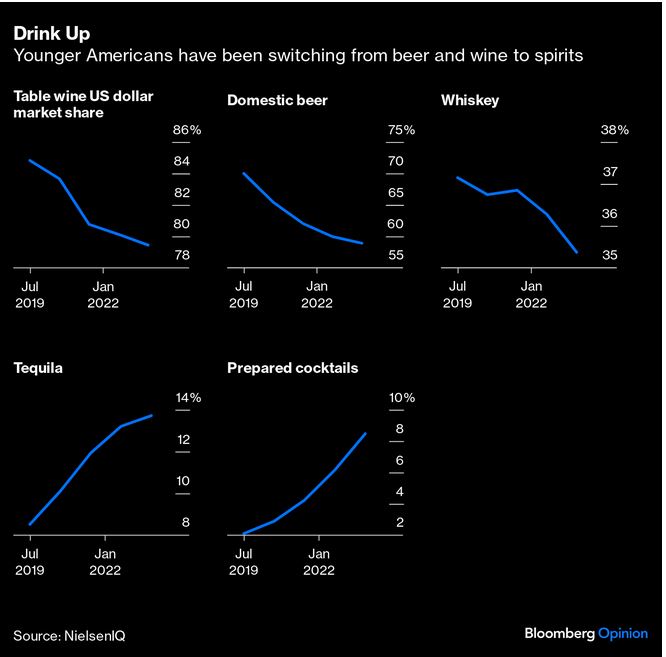 |
|
Combien de millionaires avez-vous en plus ou en moins ? / Have you
more or less millionaires ?
|
09
- 14/08/2023
|
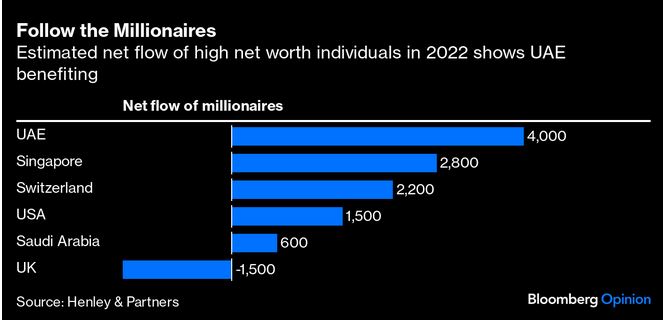 |
|
Envie de vendre son logement / Thinking about Selling
|
10
- 14/08/2023
|
 |
|
Mega-fires force us to change how we fight
Today’s mega-fires are so intense that they can render standard firefighting
useless: leaping across firebreaks, creating heat too intense to approach
and vapourizing water dropped from above before it can curb the flames.
“It’s like spitting on a campfire,” says wildland-fire researcher Mike
Flannigan. Wildfire specialists are changing their focus to prevention,
mitigation and preparedness. But in a warming world, “there’s no technofix,
no silver bullet or vaccine”, says Flannigan. “We’re in for the long haul.
Dante’s circles of hell — we’re probably on level four and we’ve got a
way to go.”
.../...
Portugal, Spain, Italy and Greece may see fewer forest fires in future,
because their increasingly arid climates will limit the growth of vegetation.
Trees will not have enough water and enough time between fires to regrow
to their former height. Land will transition to scrub. “The real problem,”
says Fernandes, “will be in regions like southern France, or Germany or
Poland, because they have biomass. And that biomass will dry out.”
With a placid lake and a few kegs of beer, the fire camp in Poland seemed
like a benign setting. But the weather was hot and dry, and already the
fire was not conforming to humans’ plans. In one exercise, after the instructor
lit the ground deliberately, a group failed to dig a sufficiently rigorous
firebreak and the burning spread deep into the soil. Volunteers were putting
out the fire late into the night.
The next day, we spoke about how firefighters can become overconfident
when they fight fires in the landscapes they know best. We spoke of the
risks from damaged trees falling. We marvelled at videos of wildfires
and prescribed burns. It struck me that the men and women at the camp
were thankfully in for the long haul. Around us, the pine canopies were
green. But we all knew that the future was orange.
See
ft.com
We Will Never Run Out of Resources. The supply of minerals is theoretically
finite, but human knowledge and creativity are limitless. By By Marian
L. Tupy and David Deutsch
The world’s population has increased eightfold since 1800, and standards
of living have never been higher. Despite increases in consumption, and
contrary to the prophecies of generations of Malthusians, the world hasn’t
run out of a single metal or mineral. In fact, resources have generally
grown cheaper relative to income over the past two centuries. Even on
the largest cosmic scale, resources may well be limitless.
…/…
See humanprogress.org
Eight Centuries of Increasing Food Abundance in England: Baking, by
Harry Backhouse
Baking products have become much more abundant for skilled and unskilled
workers alike.
See
humanprogress.org
La famille de la laitière / Milkmaids's Family, circa 1641, par Louis
Le Nain (1593-1648), Saint-Pétersbourg, musée de l'Ermitage
|
09
- 14/08/2023
|
 |
|
La famille heureuse / The happy family (1642), par Louis Le Nain (1593-1648),
Paris, musée du Louvre
|
10
- 14/08/2023
|
 |
|
Progressive gloom ignores a marvelous historical economic measure,
by By George F. Will, Columnist, July 19, 2023, The Washington Post
Progressivism’s name connotes confidence in mankind’s ability (guided
by progressives) to progress. Yet, progressivism often seems pessimistic.
This encourages Americans’ low pain threshold and high capacity for complaining,
traits unbecoming in a populace many of whose hardy predecessors walked
to Oregon.
Progressives’ obsessing about race is not only undiminished by decades
of improvements in race relations (e.g., approval of interracial marriages
was 4 percent in 1958 and 94 percent in 2021), it is inversely related
to improvements. There are vocal interests with large political and lucrative
financial stakes (e.g., the “diversity” consultants industry) in the myth
of nonprogress. Similarly, portions of the government have an interest
in insisting on its failure, despite trillions spent, to substantially
improve economic equality: Hence the government’s practice of not counting
transfer payments and tax rebates (the earned income tax credit) as income
for those of modest means. Counting those augmentations of income would
reveal that the 2021 poverty rate was not 11.6 percent, but 2 to 3 percent.
Inaccurate assessments of present conditions relative to the past fuel
grievance politics and forebodings about the future. A corrective for
these is the concept of time-price. Consider this from Yale University
economist William D. Nordhaus, a Nobel laureate, writing in the 1990s:
“One modern hundred-watt incandescent bulb burning for three hours each
night would produce 1.5 million lumen-hours of light per year. At the
beginning of the last century, obtaining this amount of light would have
required burning seventeen thousand candles, and the average worker would
have had to toil almost one thousand hours to earn the dollars to buy
the candles. In the modern era, with a compact fluorescent bulb, the 1.5
million lumen-hours would need twenty-two kilowatt-hours, which can be
bought for about 10 minutes’ work by the average worker.”
In “Life After Capitalism,” George Gilder, citing Marian L. Tupy and Gale
L. Pooley in the Cato Institute’s volume “Superabundance,” writes that
“between 1980 and 2022, workers have been able to buy some 300 percent
more goods and services with their hours and minutes.” The secret sauce
is applied knowledge. Economist Thomas Sowell is right: “The cavemen had
the same natural resources at their disposal as we have today.” They lacked
only know-how. As did the nail-maker before the Industrial Revolution,
making one nail a minute. Today’s nail maker can produce 3,500 per minute.
“We buy things with money,” Tupy and Pooley write, “but we pay for them
with time.” And “time prices can be calculated on any product with any
currency at any time and any place. This means you can compare the time
price of bread in France in 1850 to the time price of oranges in New York
in 2021.”
In 1902, a Sears Roebuck 53-cent hammer cost almost four hours of blue-collar
work. Today, Home Depot’s basic hammer ($6.50) costs about 12 minutes
of that work. Walmart’s $98 bicycle costs nominally 720 percent more than
Sears’s $11.95 bicycle in 1910, but blue-collar hourly compensation has
increased 18,450 percent. So, the time-price of a basic bike has fallen
95.6 percent.
At the mid-20th-century dawn of the shipping container era, the first
ship carried 58 containers. Today’s largest ships can carry almost 24,000,
which end to end would extend more than 90 miles. In 1956, hand-loading
cargo at U.S. ports cost $5.86 per ton; 50 years later, 16 cents. By such
efficiencies, time — the precious and intractable scarcity in an era of
multiplying abundances — is restored to us to use to demonstrate the fecundity
of freedom.
In “Superabundance,” Tupy and Pooley say that although the Homo sapiens
species is 300,000 years old, there has been economic growth for only
about 0.08 percent of that time. Global income per person per day (measured
in 2011 U.S. dollars) was about $2 when Caesar Augustus reigned, and had
grown to only $2.80 when Thomas Jefferson was president.
Economic growth has not just coincided with, it has been caused by, population
growth — more brains, more trade in knowledge. There are, however, those
who consider people a plague, and who favor ever-larger regulatory government
to prevent ruinous human ingenuity and planet-threatening dynamism. Such
people resent the time-price metric of economic (and hence social) progress
because it measures the results of millions of unplanned and uncoordinated
decisions, cooperations, inventions and refinements.
The metric frustrates those who believe, and who benefit from, pessimistic
predictions that the supposedly retrograde present is a harbinger of a
stagnant future of scarcities — unless government plans a better future.
The time-price metric blows to smithereens the idea that progressivism
is conducive to progress.
See
washingtonpost.com
Birds With Benefits: How Eagles Are Helping Dairy Farmers in Western
Washington, by Rebecca Dzombak, July 24, 2023
Bald eagles and other raptors clean up fields for free and scare off pest
birds like starlings. “You support the wildlife, the wildlife supports
you,” one farmer says.
See
civileats.com
Envie de construire (et de déménager !) / Builder sentiment and
activity
|
11
- 14/08/2023
|
 |
|
Eaux chaudes / Hot Waters
|
12
- 14/08/2023
|
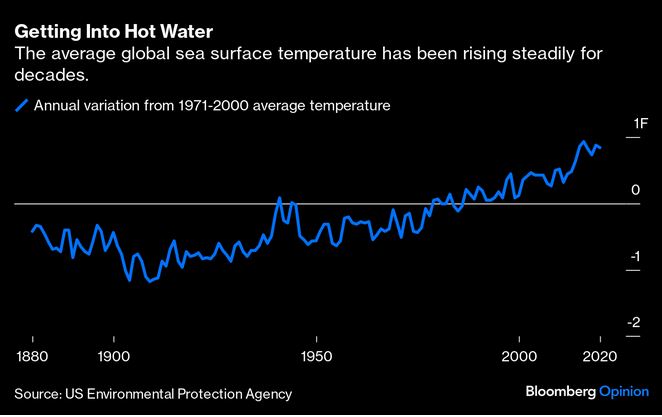 |
|
Être en mesure ou non de sortir 400 $US / To be able or not to spend
400 $US
|
13
- 14/07/2023
|
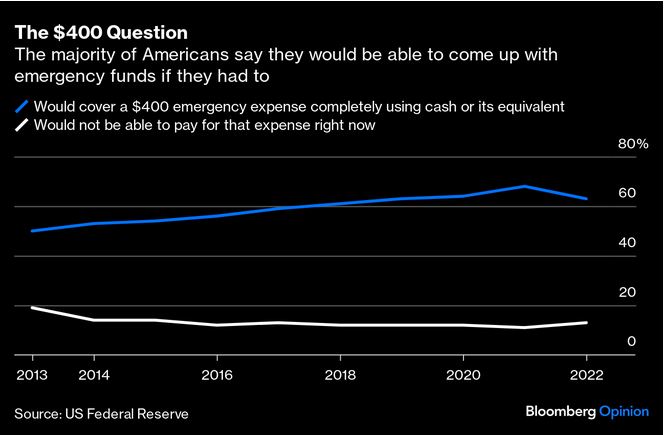 |
|
Regenerative farming practices are a 'transition for farmers': Nestlé
North America CEO
Food and beverage company Nestlé is changing the way it harvests its ingredients
by investing in regenerative farming practices to reduce its carbon footprint
and maximize crop yields. Nestlé North America CEO Steve Presley joins
Yahoo Finance Live to discuss inflation's impact on its consumer brands,
where its growth drivers are, and its plans for sustainable farming.
.../...
See
finance.yahoo.com
Shaky ground: A company called Indigo is paying farmers to trap carbon
in their soils. Some researchers say the climate benefits are dubious,
by Gabriel Popkin, 27 Jul 2023
My remark (GW): the support of regenerative ag by big companies does not
seem please the author who does not think that big companies may be honest
and may have a positive contribution to climate change mitigation.
Lance Unger has been doing things a little differently lately on his farm
near the Wabash River in southwestern Indiana. After last fall’s harvest,
rather than leaving his fields fallow, he sowed some of them with cover
crops of oats and sorghum that grew until the winter cold killed them
off. And before planting corn and soybeans this spring, Unger drove a
machine to shove aside yellowing stalks—last season’s “trash,” as he calls
it—rather than tilling the soil and plowing the stalks under.
For these efforts, a Boston-based company called Indigo paid Unger $26,232
in late 2021 and an even larger chunk late last year. That’s how much
an emerging market values the hundreds of tons of carbon that, in theory
at least, Unger yanked out of the atmosphere with his cover crops or left
in the soil by not tilling. Slowing climate change isn’t a priority for
him, he says, and it hasn’t been easy to change his longstanding farming
practices. But he says the money made it worthwhile. “I need to see economic
benefits.”
Indigo also made money in the deal. It took a 25% cut of the bundle of
credits it then sold at about $40 per ton of captured carbon. Buyers were
companies such as IBM, JPMorgan Chase, and Shopify, which were looking
to offset greenhouse gas emissions from their operations and bolster their
green bona fides.
For advocates, the exchange represents a beautiful marriage of idealism
and capitalism in the service of an urgently needed climate solution.
“Are we going to wait for the planet to catch on fire?” asks Chris Harbourt,
Indigo’s chief strategy officer. If applied across the globe’s farmland,
soil-based carbon capture could offset between 5% and 15% of greenhouse
gas emissions every year, according to an influential 2004 study by Ohio
State University soil scientist Rattan Lal. “I and many other scientists
have a lot of confidence that we can build carbon in soil,” says Deborah
Bossio, lead soil scientist for the Nature Conservancy.
Millions of dollars of soil credits have already been sold, and companies
like Indigo are ramping up aggressively to claim a piece of an industry
that could overall be worth $50 billion by 2030, according the consulting
firm McKinsey & Company. With other carbon markets based on planting
or preserving trees facing accusations of peddling questionable or outright
fraudulent credits, some buyers may see soil as a safer option.
But as the industry heats up, so does the skepticism. Some researchers
say the science of how soils store and release carbon is too uncertain
to support an industry claiming to be cooling the planet. They accuse
companies like Indigo of exaggerating the benefits of their programs.
.../...
Indigo’s leaders say these studies will add confidence, but waiting years
for results to come in before launching their marketplace would have meant
a disastrous delay. “We need solutions right now to reverse climate change,”
Harbourt says. In December 2022, Indigo said it had paid more than 400
U.S. farmers $3.7 million for regenerative practices implemented on more
than 170,000 hectares. Next year, it hopes to ramp up to 2.2 million hectares
under contract. The chemical and seed giant Corteva has enrolled more
than 400,000 hectares farmed by its customers in Indigo’s program.
.../...
See
science.org
Canadian researchers start a soil carbon measurement project, by Matteo
Cavallito, 22 May 2023
An annual project in the state of Saskatchewan will collect data on soil
carbon occurrence. The goal is to assess soil effects and generate measurable
and verifiable emission credits.
Assessing precisely how much carbon is stored in the soil and how it changes
over time. That’s the goal of a project launched in Canada by a group
of researchers from the Universities of Saskatchewan and Guelph and other
institutions and companies, including Hebert Grain Ventures, that will
take place on a 32,000-acre plot near Moosomin in south-central Canada.
The initiative is supported by CANZA (Canadian Alliance for Net-Zero Agri-Food)
recently founded by Royal Bank of Canada, in partnership with a number
of companies such as Maple Leaf Foods, Nutrien and Loblaws to support
farmers in reducing greenhouse gas emissions. The research, The Western
Producer website reported, will last 12 months. And it will involve survey
techniques such as remote sensing and spectroscopy, a tool which is known
to have interesting applications in soil analysis.
.../...
See
resoilfoundation.org
Soil organic carbon stocks potentially at risk of decline with organic
farming expansion
Organic farming is often considered a strategy that increases croplands’
soil organic carbon (SOC) stock. However, organic farms currently occupy
only a small fraction of cropland, and it is unclear how the full-scale
expansion of organic farming will impact soil carbon inputs and SOC stocks.
Here we use a spatially explicit biogeochemical model to show that the
complete conversion of global cropland to organic farming without the
use of cover crops and plant residue (normative scenario) will result
in a 40% reduction of global soil carbon input and 9% decline in SOC stock.
An optimal organic scenario that supports widespread cover cropping and
enhanced residue recycling will reduce global soil carbon input by 31%,
and SOC can be preserved after 20 yr following conversion to organic
farming. These results suggest that expanding organic farming might reduce
the potential for soil carbon sequestration unless appropriate farming
practices are implemented.
See nature.com
The limits of our personal experience and the value of statistics
It’s tempting to believe that we can simply rely on personal experience
to develop our understanding of the world.
But that’s a mistake. The world is large, and we can experience only very
little of it personally. To see what the world is like, we need to rely
on other means: carefully-collected global statistics.
Of course, our personal interactions are part of what informs our worldview.
Every time we meet people and hear about their lives, we add one more
perspective. This is no doubt a great way to see the world and expand
our understanding — but we can’t lose sight of the limitations of this.
This article aims to remind us how little we can learn about our society
through personal interactions alone, and how valuable statistics are in
helping us build the rest of the picture.
New Sustainable Development Goals Tracker
We’re very excited to have launched our new Sustainable Development Goals
(SDG) Tracker, where you can monitor global and country-by-country progress
toward the United Nations SDGs.
The SDGs are targets for global development that were adopted in 2015,
which all countries have agreed to work toward achieving by 2030.
What are the SDGs all about?
SDG 15, as one example, is about conserving life on land, by sustainably
managing forests, combatting desertification, halting and reversing land
degradation, and halting biodiversity loss.
All together, the SDGs cover many areas of human life, life on our planet,
and our planet itself.
We'll be highlighting all of the SDGs in a series of posts on our social
media over the next two months, leading up to the UN SDG Summit 2023 on
18–19 September — so check us out there, too!
Economic Growth
Good health, nutrition, a place to live, education… Many of the things
we care about most require goods and services produced by people: the
care that nurses and doctors give; the food we eat; the homes we live
in; the education that teachers provide.
Economic growth means an increase in the quantity or quality of the many
goods and services that people produce.
The history of economic growth is the history of how societies left widespread
poverty behind. In places that have seen substantial economic growth,
few people now go without food, almost all have access to education, and
parents rarely suffer the loss of a child. The work of historians shows
this was not the case in the past.
Similarly, the history of economic growth is also the history of how large
global inequalities emerged — in nutrition, health, education, basic infrastructure,
and many other dimensions. In some countries, the quantity and quality
of the goods and services underpinning these outcomes grew substantially
over the past two centuries; in others, they did not.
Of course, economic growth does not reflect everything we value. On Our
World in Data we provide thousands of measures that try to capture these
many other dimensions, covering topics such as biodiversity, pollution,
time use, human rights, and democracy.
Economic growth is, however, central to shaping people's overall living
conditions. Just as in the past, the future of global poverty and inequality
will depend on whether, and which, countries are able to substantially
grow their economy. As such, it is one of the most important aspects of
understanding our world today and what is possible for the future.
On our new page, you can find all our data, visualizations, and writing
on Economic Growth.
Homicides
Homicides — when people intentionally and illegally kill others — are
the most serious crime.
They are a common cause of death globally and a leading cause in some
countries. They not only rob the victims of their lives: they also hurt
the victims’ friends and families and harm the broader community.
Our new page provides data and research on how frequent homicides are,
how this differs across countries, and how their frequency is changing
over time.
We’ve also published a new article on homicide data that describes how
sources differ and when to use which source.
Tourism
Tourism has massively increased in recent decades. Aviation has opened
up travel from domestic to international. Before the COVID-19 pandemic,
the number of international visits had more than doubled since 2000.
Tourism can be important for both the travelers and the people in the
countries they visit. For visitors, traveling can increase their understanding
of and appreciation for people in other countries and their cultures.
And in many countries, many people rely on tourism for their income. In
some, it is one of the largest industries.
But tourism also has externalities: it contributes to global carbon emissions
and can encroach on local environments and cultures.
On our new page, you can find data and visualizations on the history and
current state of tourism across the world.
Malaria: One of the leading causes of child deaths, but progress is
possible and you can contribute to it
We do not have to live in a world in which 1,320 children die every day
from a disease that is preventable — malaria. Malaria is one of the leading
causes of child death.
We know that progress against malaria is possible because it was once
prevalent in many parts of the world that are now free of it today.
How have we made this progress, and how can we continue? Economic development
has played a key role, but this is a slow process.
There are opportunities right now to protect people from malaria — with
the use of insecticide-treated bed nets. This simple and cheap technology
has saved millions of lives in the last few years.
As we explain in the article, each of us can individually contribute to
this progress right now by making a donation to the organizations that
are achieving this change — for example by following the donation recommendations
at GiveWell.org.
Sherlock Holmes and Dr Watson are on a camping trip
In the middle of the night, Holmes nudges Watson awake, and says, "Watson,
look up at the sky and tell me what you see."
"I see millions of stars, my dear Holmes."
"And what do you infer from these stars?"
"Well, a number of things," he says, lighting his pipe:
Astronomically, I observe that there are millions of galaxies and billions
of stars and planets.
Astrologically, I observe that Saturn is in Leo.
Horologically, I deduce that the time is approximately a quarter past
three.
Meteorologically, I expect that the weather will be fine and clear.
Theologically, I see that God is all-powerful, and man, his creation,
small and insignificant.
What about you, Holmes?"
"Watson, you fool. Someone has stolen our tent!"
The creation of this efita newsletter is sponsored by Acta Digital
Services and its distribution by vitisphere.com
Please, contribute to the content of your efita newsletter, and advertise
your events, new publications, new products and new project in this
newsletter. Without your support, it will not survive!
Contact: Guy WAKSMAN
E-mail: guy.waksman(a)laposte.net
To read this newsletter on our web site
See Efita
The archives of this newsletter
See Efita
Do not miss the Virus Jokes in English and French
About the EFITA mailing list
You can use the efita moderated list (> 15000 subscribers) to announce
any event / product / web site / joke (!) related to IT in agriculture,
environment, food industry and rural areas.
If you want to subscribe a friend, please fill in his
form.
If you do not wish to receive our messages, please fill in the following
form...
|

































